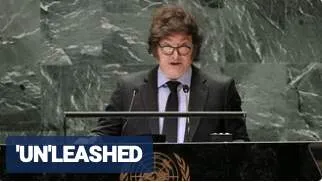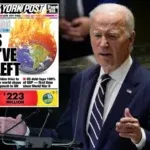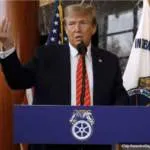(Fox News) Argentinian President Javier Milei, in his first address before the United Nations General Assembly, blasted the organization, saying it “has transformed into a Leviathan with multiple tentacles that intends to decide not only what each nation-state should do but also how all the citizens of the world should live.”
He added, “This is how we moved from an organization that pursued peace to an organization that imposes an ideological agenda on its members,” according to a Reuters translation.
He then took aim at the world body’s latest offering, calling its “Pact for the Future” “twisted,” saying the policy was the “wrong course” to follow.
Milei accused the U.N. of turning into “one of the main proponents of systemic violations of freedom,” citing the organization’s support for the COVID pandemic lockdowns and allowing “bloody dictatorships” such as Venezuela to sit on the Human Rights Council“without reproach.”
“For this reason, I’d like to officially express our dissent on the pact for the future that was signed on Sunday, and I invite all nations of the free world to support us, not only in the U.N. in relation to this pact, but also in the establishment of a new agenda for this noble institution that is the agenda for freedom,” Milei declared.

Argentinean President Javier Milei addresses the 79th United Nations General Assembly at U.N. headquarters in New York City on Sept. 24, 2024. (Reuters/Eduardo Munoz)
“As the ‘Pact for the Future’ purports to dictate, this long list of errors and contradictions has led to a loss of credibility for the United Nations before the citizens of the free world,” Milei said. “I’d like to issue a warning here we are coming to the end of a cycle: Collectivism and moral posturing and the woke agenda is coming up against reality. There are no further credible solutions to the real problems of the world.”
The “Pact for the Future” was the centerpiece of the Summit for the Future, which kicked off the high-level week for the U.N. General Assembly this week. The pact serves as the culmination of policies and mission statements issued by U.N. Secretary-General António Guterres over the past few years.
The pact aims to expand the scope and focus of the U.N. and its members to handle “global shocks,” such as “disruptions to global flows of goods, people or finance.”







